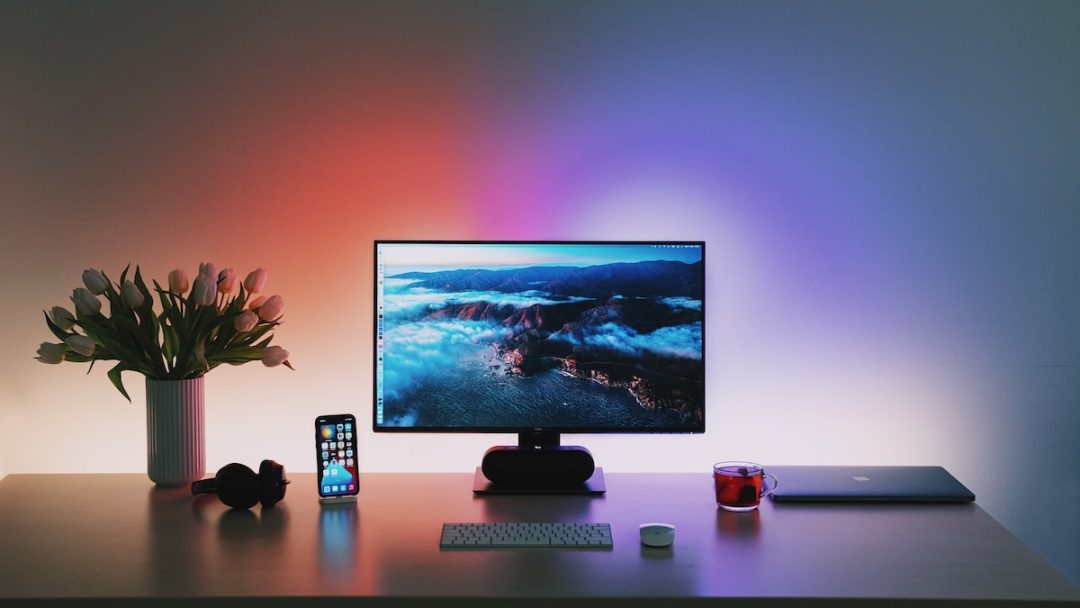Choosing The Right Desktop For Music Production

In the world of music production, having the right tools is essential for creating top-notch tracks. One of the most critical tools for music production is the desktop computer. With so many options available, choosing the right desktop for music production can be a daunting task. From processing power to storage capacity, there are numerous factors to consider. In this article, we will explore the key considerations to keep in mind when selecting the perfect desktop for music production, ensuring that you have the necessary foundation to bring your musical visions to life.
Related: Buy NIPPO NP-100 Wireless HD Headset
Processor Power and Speed: Finding the Perfect Balance for Music Production
When it comes to music production, having the right desktop computer is crucial. One of the most important factors to consider is the processor power and speed. But finding the perfect balance can be a challenge. Too much power and you may end up paying for features you don’t need, while too little power can limit your ability to create and produce high-quality music.
So how do you find the sweet spot? Here are some key considerations to keep in mind:
- Processing power: Look for a desktop with a processor that can handle the demands of music production software. A multi-core processor, such as an Intel Core i7 or AMD Ryzen 7, can provide the necessary power for running multiple tracks, plugins, and effects simultaneously.
- Clock speed: The clock speed of a processor determines how quickly it can execute tasks. For music production, aim for a processor with a high clock speed to ensure smooth performance. A clock speed of at least 3.5 GHz is recommended.
- Cache size: The processor’s cache is a small amount of memory that stores frequently accessed data for faster retrieval. A larger cache size can improve performance when working with large audio files or complex projects.
Remember, finding the perfect balance between processor power and speed is essential for a seamless music production experience. Take the time to research and compare different desktop options to ensure you find the right one that meets your specific needs and budget.
Related: Computers Repair And Maintenance
RAM and Storage: Optimal Configurations for a Seamless Music Production Workflow
When it comes to music production, having the right RAM and storage configurations is essential for a seamless workflow. The amount of RAM and storage you have can greatly impact the performance and speed of your desktop, allowing you to work efficiently and without any interruptions. Here are some optimal configurations to consider:
RAM:
- 16GB: This is the minimum recommended RAM for music production. It allows you to run most music production software smoothly and handle multiple tracks and plugins.
- 32GB: If you work with larger projects or use resource-intensive plugins, upgrading to 32GB of RAM can provide even better performance and reduce the risk of crashes or lag.
- 64GB or more: For professional music producers or those working with extremely complex projects, having 64GB or more of RAM can ensure that your system never slows down, no matter how demanding your workflow is.
Storage:
- SSD: Solid-state drives (SSD) are highly recommended for music production. They offer faster read and write speeds compared to traditional hard drives, allowing for quick project loading and saving.
- 500GB or 1TB: A 500GB or 1TB SSD is usually sufficient for most music producers. It provides enough storage space for your operating system, software, plugins, and project files.
- Additional HDD: If you need more storage space for sample libraries, sound packs, or other large files, you can also add an additional hard disk drive (HDD) alongside your SSD. HDDs are slower than SSDs but are more cost-effective for storing large amounts of data.
By choosing the right RAM and storage configurations for your music production desktop, you can optimize your workflow and ensure a seamless experience. Remember to consider the size and complexity of your projects, as well as your budget, when making these decisions. Investing in the right hardware will ultimately enhance your creativity and productivity in the music production process.
Audio Interfaces and Connectivity: Choosing the Right Hardware for Enhanced Performance
In the world of music production, having the right audio interface and connectivity options can make all the difference in your workflow and the quality of your final product. Whether you’re a professional producer or just starting out, selecting the right hardware is crucial for achieving enhanced performance and unlocking your creative potential.
When it comes to audio interfaces, there are a few key factors to consider. Firstly, the number of inputs and outputs you require will depend on the complexity of your setup. If you’re primarily working with just a microphone and a pair of headphones, a simple two-channel interface may be sufficient. However, if you’re recording multiple instruments simultaneously or need to connect to external hardware, opting for an interface with more inputs and outputs will give you greater flexibility. Some interfaces even offer built-in preamps, which can greatly improve the sound quality of your recordings.
Operating System and Software Compatibility: Ensuring Smooth Integration for Music Production Needs
Operating System and Software Compatibility: Ensuring Smooth Integration for Music Production Needs
When it comes to music production, having the right desktop setup is crucial. One of the key factors to consider is the compatibility of the operating system and software you plan to use. Ensuring a smooth integration between your hardware, OS, and music production software is essential for a seamless workflow and optimal performance.
Firstly, it’s important to choose an operating system that is compatible with the software you rely on for your music production needs. Whether you prefer macOS, Windows, or Linux, each has its own strengths and weaknesses. While macOS is renowned for its stability and user-friendly interface, Windows offers a wider range of software options and customization possibilities. Linux, on the other hand, is favored by those who prioritize open-source software and flexibility. Consider your specific requirements and preferences to determine the most suitable operating system for your music production workflow.
- Check software compatibility: Before making a final decision, thoroughly research the compatibility of the music production software you plan to use with your chosen operating system. Some software may be exclusive to a particular OS, while others may have limited functionality on certain platforms.
- Hardware requirements: Take into account the hardware requirements of both your chosen operating system and the music production software. Ensure that your desktop meets or exceeds these requirements to avoid any performance issues or compatibility issues.
- Consider future upgrades: Keep in mind that your music production needs may evolve over time. Consider whether the operating system and software you choose will be compatible with any potential future upgrades or additions to your setup.
By carefully considering the operating system and software compatibility, you can ensure a smooth integration that optimizes your music production workflow. Remember to always stay informed about the latest updates and compatibility issues to keep your setup up to date and running smoothly.
To Conclude
In conclusion, choosing the right desktop for music production is a crucial decision that can greatly impact the quality of your work. By considering factors such as processing power, storage capacity, and expandability, you can ensure that your desktop is equipped to handle the demands of music production. Whether you opt for a pre-built system or decide to build your own, it’s important to prioritize performance and reliability. With the right desktop at your disposal, you’ll be well-equipped to bring your musical visions to life. So, take your time, do your research, and make an informed decision that will set you up for success in the world of music production.



